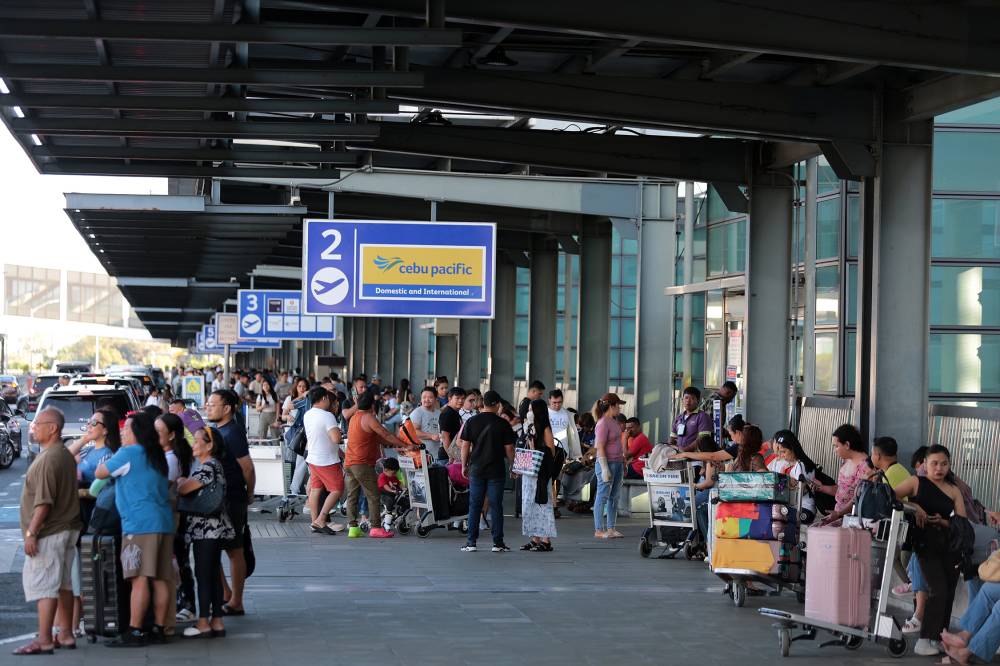
Passengers arrive at the Ninoy Aquino International Airport (NAIA) terminal 3 in Paranaque City on Sunday, March 3, 2024. Manila International Airport Authority (MIAA) head executive assistant Chris Noel Bendijo said that the NAIA terminals 2 and 3 are now free from bed bugs. INQUIRER PHOTO / GRIG C. MONTEGRANDE
MANILA, Philippines — More airline passengers boarded commercial flights last year, signaling a steady recovery for the aviation sector, but volume has yet to reach prepandemic levels, according to data from the Civil Aeronautics Board (CAB).
The regulator reported that passenger volume for both domestic and international flights reached 50.18 million last year, soaring by 55 percent from 32.33 million in 2022.
The latest print, the highest since the pandemic disrupted airline operations globally, was about 84 percent of the 60.06 million passenger volume recorded in 2019.
READ: Recovering tourism industry exceeds target, draws over 5.5 million visitors in 2023
Passenger movement was mostly accounted for by local flights, comprising about 58 percent of the total. Broken down, domestic passengers rose by 29 percent to 28.97 million while passengers onboard international flights more than doubled to 21.21 million last year.
The local airports were busier last year as the momentum for air travel was sustained after the lifting of the pandemic-induced lockdowns across the globe. In response, the carriers have been ramping up their passenger capacities by reopening routes and introducing new destinations.
Apart from business travels, leisure trips have been on the rise as well, driving tourism activities as a result.
Global supply chain crunch
Elsewhere in the world, the aviation sector has been regaining a foothold as passenger traffic improved by 36.9 percent last year, according to the International Air Transport Association.
READ: S&P: Asia-Pacific aviation sector on path to full recovery by 2024
However, airlines struggled with the availability of aircraft last year due to a global supply chain crunch. The local carriers have since placed jet orders to beef up their fleet.
Budget carrier Cebu Pacific ferried the most passengers last year with its volume growing by 34 percent to 15.85 million. Its regional brand Cebgo Inc., meanwhile, flew over 2.2 million passengers last year.
Following this was Philippine Airlines (PAL) subsidiary PAL Express whose passenger volume more than doubled to 7.77 million last year. PAL’s volume, meanwhile, was up 17 percent to 6.26 million.
AirAsia Philippines, the third biggest player, flew 5.96 million passengers last year, registering a 55-percent uptick. INQ

